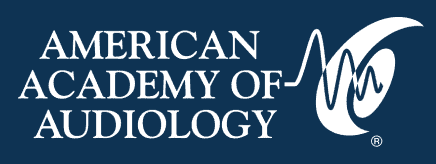With the daily stressors of new variants and changing requirements, the COVID-19 pandemic proves to be a challenging time for many people, including individuals with tinnitus. An early report stated that nearly half of people with tinnitus in the UK have reported worsened tinnitus due to the impact of lockdown and lifestyle changes (Beukes et al., 2020).
Since that time, many people have reportedly written to authors of these research studies, affirming that they, too, had experienced a COVID-19 infection along with tinnitus. Kevin Munro, PhD, MSc, Professor of Audiology at The University of Manchester, suggests that “COVID-19 could cause problems with parts of the auditory system including the middle ear or cochlea” as previously reported by The Hearing Journal. With new variants that bring on different symptoms to different patients, it’s a rapidly evolving situation.
Given the overall increased stress levels associated with the pandemic, it is critical to stay up-to-date with tinnitus management strategies that are best suited for your patients’ unique circumstances.
While patients may seek audiological care for a myriad of factors that induce tinnitus, the American Board of Audiology (ABA) Certificate Holder in Tinnitus Management (CH-TM) program provides practitioners with a comprehensive set of materials that provide a foundational knowledge and skillset. This allows providers to practice at the top of their craft in serving their patients with bothersome and non-bothersome tinnitus.
As it seems to be true in many areas of healthcare, the COVID-19 pandemic has brought several new aspects to consider when caring for patients with complex medical histories. If you or a colleague are interested in furthering your professional training in tinnitus management, be sure to gain the CH-TM credential to not only support your development, but also to let your patients know about your additional specialized training.
Reference
Beukes EW, Baguley D, Jacquemin L, Lourenco MPCG, Allen P, Onozuka J, et al. Changes in Tinnitus Experiences during the COVID-19 Pandemic. Frontiers. Frontiers, November 5, 2020.
Recent Posts
ASLP-IC Readies for Rollout: Here’s What You Need to Know
The Audiology and Speech-Language Pathology Interstate Compact (ASLP-IC) continues to move toward full implementation, expanding opportunities for audiologists and speech-language pathologists to practice across state…
How Do Animals Perceive Music?
Music can be defined as vocal, instrumental, or mechanical sounds, with rhythm, melody or harmony, and often, an expression of human emotion. Music can transcend…
‘Eye’ on Health: AI Detects Dizziness and Balance Disorders Remotely
Interesting research led by audiologist Ali Danesh, PhD, at Florida Atlantic University (FAU) helped develop a novel, proof-of-concept tool to help identify nystagmus using a…



